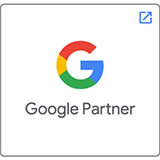Six Questions you Never Want Asked About Your Website and How to Prevent Them
1. What is this website about?
Many times we get so caught up with the aesthetics and overall design of a site that we lose focus of the big picture. If people go to your site and are left wondering what the site is about, that’s a problem. The user should know exactly what your business does almost immediately upon visiting your website. You can accomplish this by putting descriptive information above the fold on your home page. Do not make your user search throughout the entire site to figure out what you do, they will not take the time. Try to remove yourself from your business and picture yourself visiting your website for the first time as a customer. Would you be able to clearly understand what your website is about?
2. Where can I find more information?
This question goes hand in hand with question #1. Even if your homepage makes your overall purpose crystal clear, you still need to incorporate enough information throughout the rest of your site. Include an about us page that goes into more detail about who you are as a professional and overall company. Add an FAQ section that will answer any possible questions a customer may ask about your product, service or brand. A blog is also a must-have for any business and can be an additional resource to your users. Most importantly, is there a clear pathway for others to find all of this information? If your site is not easy to navigate and certain sections are buried so deep that no one can find them, the information is completely useless.
3. This doesn’t make sense, what does any of this mean?
Although utilizing SEO tactics and marketing lingo is essential to ranking your website and obtaining conversions, sometimes this makes the content confusing to users. For a moment, forget about SEO, your business, and your specific goals. Instead, think about the customer and someone who knows nothing about you. For example, for SEO purposes you may put multiple keywords on your homepage in an effort to rank higher in Google. Keywords are important to use, but if they are placed in a sentence forcefully they may not make much sense to an outside individual. Don’t forget that your website should fulfill a need of an individual who has landed on your site. If you confuse them, they are going to go elsewhere. Additionally, Google is looking at your site from a human level too. If your site is stuffed with keywords and does not make sense on a contextual level, Google will see this as a negative strike against you.
4. How do I contact someone?
If you have successfully attracted an individual to your site and they now want to find out more, do you make it easy for them to do so? Your contact information should be in multiple places throughout your site. At the very least include it on the footer and create a separate contact us page. You should also consider a contact form on your homepage that appears above the fold. Be sure that you include all the information your customer will need such as phone number, address, e-mail address, hours of operation, fax number, etc. If someone is interested, but cannot find a way to contact you they will move on and get in touch with someone else. After all, unless it is a brochure site, the entire point of your website is to convert.
5. Is there enough content about each important topic? (Asked by Google)
I mainly bring this up for SEO reasons. If you are trying to be found online for a particular keyword, you must have a substantial amount of content on your site about that topic. Think about the different cities, states, or regions you wish to rank for as well. If your site never references these words or phrases search engines are not going to consider your site relevant for them. With that being said, it is possible to go overboard. Avoid adding an excessive amount of content or it will become too cluttered and only confuse your readers.
6. Have I reviewed my site using any apps, tools or outside services?
This one is more of a question you should ask yourself. It is never a bad idea to get a second (or even a third and fourth) opinion on the overall design and usability of a website. Other than someone else checking out the site, we also recommend using a few tools that can make the review process more efficient. Some suggestions are peek and Google Analytics.
Have you reviewed your site lately? PaperStreet can help whether you are looking for SEO services or a full website redesign. Contact us today for more information.
Relevant articles
You Might Need a New Website If …
Quality Assurance: Catching Errors Before Launch
A Spring Cleaning List for Your Website
Four Things You Should Never Say in Your Law Firm Website Content







